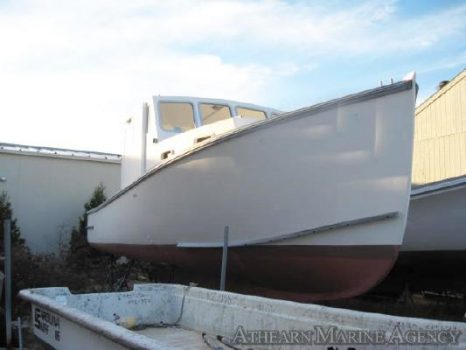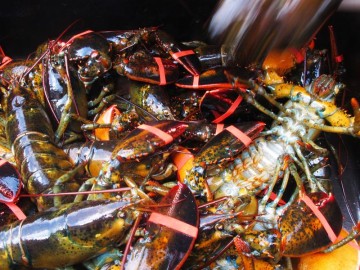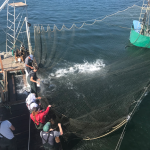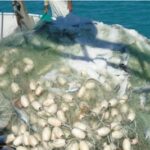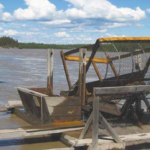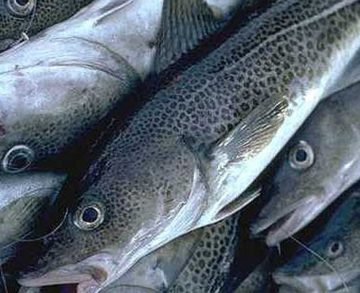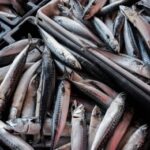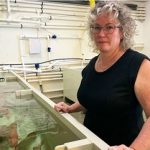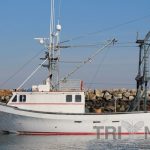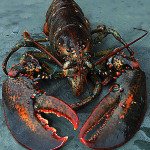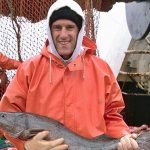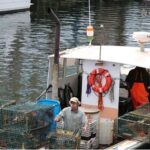Monthly Archives: June 2016
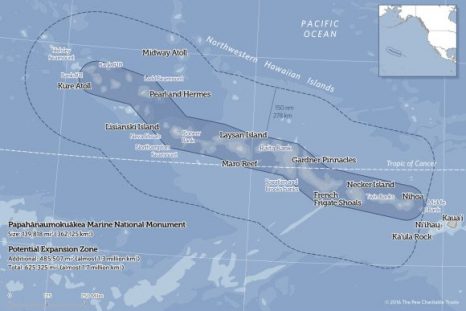
Peter Apo: Obama Should Say No To Expanded Marine Monument
President Obama is considering a request to more than quadruple the size of the Papahanaumokuakea Marine National Monument in the Northwestern Hawaiian Islands to 580,000 square miles – an area as large as the states of Texas, California and Montana. If Obama takes this step, the federal government essentially would assert control over hundreds of thousands of miles of ocean around Hawaii with no public discussion. According to the Antiquities Act of 1906, the trigger to designate an area as a national monument is simply the president’s signature. No discussion required — not by Congress, not by state government and not by citizens who rely on the targeted geo-cultural area. Read the story here 16:11
Atlantic States Marine Fisheries Commission Considers Menhaden Regulation Changes
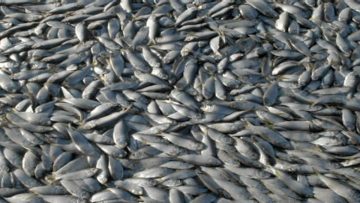 Life is about to possibly get easier for menhaden fisherman in Maryland. Menhaden, a popular bait fish, are regulated by the Atlantic States Marine Fisheries Commission, or ASMFC. Several years ago, an ASMFC report indicated that the menhaden stock was being overfished. However, a report that came out a year ago showed that the fishery was in fact strong. The ASMFC is now undoing some of the regulations it passed to protect the species. It has been years since the ASMFC said that menhaden over fishing was occurring. One lawsuit and several years later, watermen are still feeling the effects of the regulations put in place to protect the species. “When they cut us 20 percent, some of our buyers went to alternative bait like razor clams and the price of bait went up. They went somewhere else so it has really hurt our industry. We can’t sell as much as we were before,” said Boo Powley, a fifth generation waterman. Video, read the rest here 15:23
Life is about to possibly get easier for menhaden fisherman in Maryland. Menhaden, a popular bait fish, are regulated by the Atlantic States Marine Fisheries Commission, or ASMFC. Several years ago, an ASMFC report indicated that the menhaden stock was being overfished. However, a report that came out a year ago showed that the fishery was in fact strong. The ASMFC is now undoing some of the regulations it passed to protect the species. It has been years since the ASMFC said that menhaden over fishing was occurring. One lawsuit and several years later, watermen are still feeling the effects of the regulations put in place to protect the species. “When they cut us 20 percent, some of our buyers went to alternative bait like razor clams and the price of bait went up. They went somewhere else so it has really hurt our industry. We can’t sell as much as we were before,” said Boo Powley, a fifth generation waterman. Video, read the rest here 15:23
Bristol Bay Fishermen’s Association seeks more members, better payouts
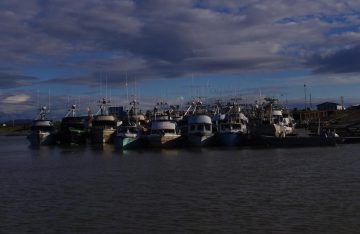 The name isn’t the only thing changing for the group formerly called the Alaska Independent Fishermen’s Marketing Association. Now dubbed the Bristol Bay Fishermen’s Association, the organization is shifting gears to focus on fair and consistent payment for its membership. “The mission [of] the BBFA is to achieve a fair price on the fish tickets when we go fishing,” BBFA member David Kopra said. “That’s our mission, that’s our purpose, that’s why we’re here.” Kopra, who has been a commercial fisherman in Bristol Bay for 37 years, said that the BBFA needs more fishermen to participate in order to be effective. “I really want us all on the same page when it comes to our price negotiations. We need to stick together,” Kopra said. “The processors stick together. If you’ve noticed, their prices are always the same.” Listen, read the rest here 13:45
The name isn’t the only thing changing for the group formerly called the Alaska Independent Fishermen’s Marketing Association. Now dubbed the Bristol Bay Fishermen’s Association, the organization is shifting gears to focus on fair and consistent payment for its membership. “The mission [of] the BBFA is to achieve a fair price on the fish tickets when we go fishing,” BBFA member David Kopra said. “That’s our mission, that’s our purpose, that’s why we’re here.” Kopra, who has been a commercial fisherman in Bristol Bay for 37 years, said that the BBFA needs more fishermen to participate in order to be effective. “I really want us all on the same page when it comes to our price negotiations. We need to stick together,” Kopra said. “The processors stick together. If you’ve noticed, their prices are always the same.” Listen, read the rest here 13:45
More women in P.E.I. lobster fishery are becoming Captains!
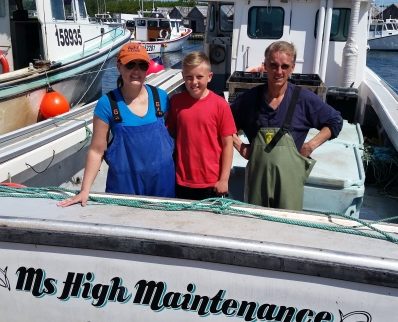 While lobster fishing has long been one of the backbones of the P.E.I. economy, a woman at the helm of a fishing boat hasn’t been a common sight. But that is changing in the industry as more women are becoming captains. “Love it, absolutely love it,” said 36-year-old Bethany McCarthy at the wheel, a few minutes out from the wharf at Grahams Pond. “It was a little scary at first. There was a couple of days at the beginning where I thought I made a big mistake so I didn’t know what direction I was going. I was just like, it was awful, it was awful. But after the first week I was like, you know what, I can do this.” Read the story here 13:17
While lobster fishing has long been one of the backbones of the P.E.I. economy, a woman at the helm of a fishing boat hasn’t been a common sight. But that is changing in the industry as more women are becoming captains. “Love it, absolutely love it,” said 36-year-old Bethany McCarthy at the wheel, a few minutes out from the wharf at Grahams Pond. “It was a little scary at first. There was a couple of days at the beginning where I thought I made a big mistake so I didn’t know what direction I was going. I was just like, it was awful, it was awful. But after the first week I was like, you know what, I can do this.” Read the story here 13:17
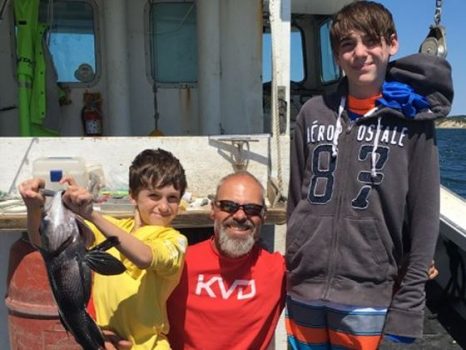
A Fundraiser – Support Luke Gurney’s Family In The Days To Come
On Monday, June 20, the island of Martha’s Vineyard lost one of its most treasured members of their community. Forty-eight year old conch fisherman, Luke Gurney, was fishing off the coast of Nantucket, where he became entangled in the gear and was swept off his boat, No Regrets. A multi-agency search ended after rescue crews were able to recover his body and bring him home. Luke, husband of Robyn and loving father to thirteen-year-old Jacob and eleven year old Samuel, embraced life with the fullest of hearts. Passionate about everything he touched and believed in, Luke lived his life with no regrets. There was nothing more meaningful to him than spending time with his boys and Robyn, whether it was fishing, hikes in the woods, traveling, or cooking dinner for everyone. Luke was able to instill invaluable characteristics in his boys where they could appreciate everyday life. Please donate whatever you can by clicking here 10:32
Frank Blum – Boost production to keep S.C. seafood industry afloat
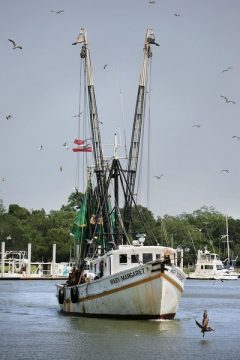 Where did, where does, where will your seafood come from? The year 1995 was a pivotal point for South Carolina seafood production. From 1950 to 1995 the average landings of seafood was 19.5 million pounds annually. Over the last 12 years the landings have averaged about 11.0 million pounds — a decrease in production of 43 percent. Average 2014 dollars per year to producers 1950 to 1996 were $38.7 million, and from 2003 to 2014 were $22.7 million. This is a decrease in revenue of 41 percent. Today 90 percent of all seafood consumed in the U.S. is imported. Here in the Lowcountry of South Carolina our consumption of imported seafood is somewhat less than this 90 percent because of our direct access to the ocean. Low-cost imports, consisting of 50 percent aquaculture, were major players in pushing many South Carolina watermen out of the seafood business by drastically undercutting their prices. Wild shrimp producers were hurt the most by low-priced imports. One quarter of all seafood consumed in the U.S. is shrimp. Read the rest here 09:58
Where did, where does, where will your seafood come from? The year 1995 was a pivotal point for South Carolina seafood production. From 1950 to 1995 the average landings of seafood was 19.5 million pounds annually. Over the last 12 years the landings have averaged about 11.0 million pounds — a decrease in production of 43 percent. Average 2014 dollars per year to producers 1950 to 1996 were $38.7 million, and from 2003 to 2014 were $22.7 million. This is a decrease in revenue of 41 percent. Today 90 percent of all seafood consumed in the U.S. is imported. Here in the Lowcountry of South Carolina our consumption of imported seafood is somewhat less than this 90 percent because of our direct access to the ocean. Low-cost imports, consisting of 50 percent aquaculture, were major players in pushing many South Carolina watermen out of the seafood business by drastically undercutting their prices. Wild shrimp producers were hurt the most by low-priced imports. One quarter of all seafood consumed in the U.S. is shrimp. Read the rest here 09:58
Alaska IPHC board member fined $49K for fishing violation, resigns
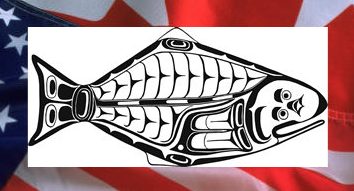 Jeff Kauffman resigned as the Alaska resident member of the International Pacific Halibut Commission on June 22, shortly after he and two fellow fishermen agreed to a $49,000 fine for harvesting more than 10,000 pounds of halibut over their combined quota limit in June 2012. The settlement the National Oceanic and Atmospheric Administration Office of Law Enforcement agreed to was nearly $13,000 less than the original Notice of Violation and Assessment of $61,781 issued on March 1 of this year. Kauffman, who is the vice president of the Central Bering Sea Fisherman’s Association, or CBSFA, and a member of the Advisory Panel to the North Pacific Fishery Management Council, did not respond to a request for comment. Interesting article that should raise some questions regarding conflicting relationships. Read the story here 08:40
Jeff Kauffman resigned as the Alaska resident member of the International Pacific Halibut Commission on June 22, shortly after he and two fellow fishermen agreed to a $49,000 fine for harvesting more than 10,000 pounds of halibut over their combined quota limit in June 2012. The settlement the National Oceanic and Atmospheric Administration Office of Law Enforcement agreed to was nearly $13,000 less than the original Notice of Violation and Assessment of $61,781 issued on March 1 of this year. Kauffman, who is the vice president of the Central Bering Sea Fisherman’s Association, or CBSFA, and a member of the Advisory Panel to the North Pacific Fishery Management Council, did not respond to a request for comment. Interesting article that should raise some questions regarding conflicting relationships. Read the story here 08:40
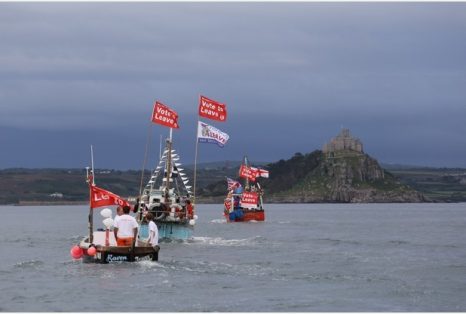
BREXIT! Fishermen say Leave promises on quotas must be delivered after EU referendum result
Leaders of the West’s fishing industry say they will be looking for Leave campaigners to keep their promises in the wake of the historic referendum result. Paul Trebilcock, chief executive of the Cornish Fish Producers Organisation (CFPO), said there were challenging times ahead but it was time to look towards the future. “The dice has been thrown and now we have got to see what the future holds,” he said. “The promises that the likes of George Eustice has made have to be delivered. Read the rest here 08:02
ENGO Oceana Canada says Canada’s fishery’s are in severe decline
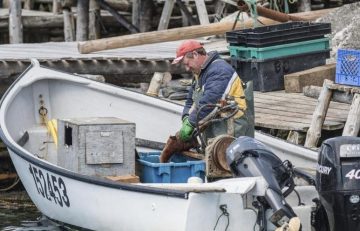 A leading ocean conservation group sounded an alarm over the state of Canada’s fishery Thursday in a new report that reveals that less than 25 per cent of the country’s fish stocks are considered healthy and the status of almost half is unknown. In the most comprehensive public study ever conducted on the state of Canada’s fish, the report outlines the extent to which overfishing and decades of poor management practices have severely depleted Canada’s fish populations. The status of a whopping 45 per cent of stocks couldn’t be determined due to an absence of basic or up-to-date information, which the report attributed to a lack of transparency in Canada’s fisheries. The report called the latter a “long-standing problem, exacerbated by the previous federal government’s cuts to Canada’s once world-class fisheries science capacity and by the rigorously enforced policy of discouraging scientists from speaking about their work. Read the rest here, and hang on. 20:40
A leading ocean conservation group sounded an alarm over the state of Canada’s fishery Thursday in a new report that reveals that less than 25 per cent of the country’s fish stocks are considered healthy and the status of almost half is unknown. In the most comprehensive public study ever conducted on the state of Canada’s fish, the report outlines the extent to which overfishing and decades of poor management practices have severely depleted Canada’s fish populations. The status of a whopping 45 per cent of stocks couldn’t be determined due to an absence of basic or up-to-date information, which the report attributed to a lack of transparency in Canada’s fisheries. The report called the latter a “long-standing problem, exacerbated by the previous federal government’s cuts to Canada’s once world-class fisheries science capacity and by the rigorously enforced policy of discouraging scientists from speaking about their work. Read the rest here, and hang on. 20:40
Coast Guard medevacs ailing crewmember north of Cold Bay, Alaska
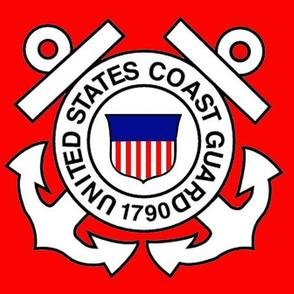 A Coast Guard Air Station Kodiak MH-65 Dolphin helicopter crew, deployed aboard the Coast Guard Cutter Midgett, medevaced an ailing crewmember aboard the fishing vessel Seafreeze Alaska approximately 195 miles north of Cold Bay, Alaska, Thursday. The helicopter crew hoisted the 21-year-old man, who reportedly lost consciousness for 45 minutes, and transferred him to awaiting Guardian Flight emergency medical personnel in Cold Bay. Coast Guard 17th District watchstanders were notified at approximately 7:45 a.m. by personnel at Health Force Partners of a medical situation aboard the Seafreeze Alaska. Watchstanders consulted the duty flight surgeon who recommended the medevac. Crewmembers from Midgett rendezvoused with the vessel north of Cold Bay and launched the rescue helicopter crew. While the helicopter was airborne, Midgett remained on scene to act as a support platform for the rescue helicopter. Once the hoist was complete, the helicopter refueled aboard the cutter before proceeding to Cold Bay. Link 20:16
A Coast Guard Air Station Kodiak MH-65 Dolphin helicopter crew, deployed aboard the Coast Guard Cutter Midgett, medevaced an ailing crewmember aboard the fishing vessel Seafreeze Alaska approximately 195 miles north of Cold Bay, Alaska, Thursday. The helicopter crew hoisted the 21-year-old man, who reportedly lost consciousness for 45 minutes, and transferred him to awaiting Guardian Flight emergency medical personnel in Cold Bay. Coast Guard 17th District watchstanders were notified at approximately 7:45 a.m. by personnel at Health Force Partners of a medical situation aboard the Seafreeze Alaska. Watchstanders consulted the duty flight surgeon who recommended the medevac. Crewmembers from Midgett rendezvoused with the vessel north of Cold Bay and launched the rescue helicopter crew. While the helicopter was airborne, Midgett remained on scene to act as a support platform for the rescue helicopter. Once the hoist was complete, the helicopter refueled aboard the cutter before proceeding to Cold Bay. Link 20:16
Luke L. Gurney- lived life to the fullest and was the “best’’ husband, father, son and friend
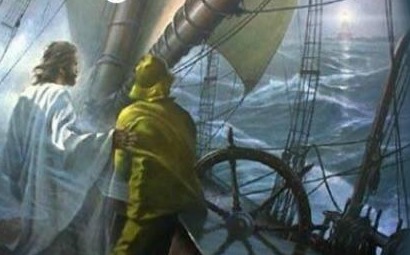 Luke Leonard Luscomb Gurney passed away on June 20, 2016. He lived life to the fullest and was the “best’’ husband, father, son and friend that anyone would want. Since 2009 he has fished commercially for whelk (conch), sea bass and scup in waters surrounding the Vineyard and Nantucket. He has lived on the Vineyard since 1994 but to anyone who knew him he was a “born and bred islander.” He had a passion for fishing and was the best at it according to his peers. However, more than fishing he loved his family with all his heart. His wife, Robyn Gurney and his two sons, Jacob and Sam loved him and will miss him dearly. He is also survived by his parents John and Linda Gurney, his sister Mary Gurney-Sylvia and her husband David Sylvia and their children, Grace, Luke, Meredith and Mairwen, his brother Joshua Gurney, his children Sophie and Elliot. With our deepest sympathy, Read the rest here Help Support Luke Gurney’s Family In The Days To Come, click here 19:37 This is a very nice article about Luke Gurney. Islanders Mourn Fisherman, Father and Beacon of Light click here 20:56
Luke Leonard Luscomb Gurney passed away on June 20, 2016. He lived life to the fullest and was the “best’’ husband, father, son and friend that anyone would want. Since 2009 he has fished commercially for whelk (conch), sea bass and scup in waters surrounding the Vineyard and Nantucket. He has lived on the Vineyard since 1994 but to anyone who knew him he was a “born and bred islander.” He had a passion for fishing and was the best at it according to his peers. However, more than fishing he loved his family with all his heart. His wife, Robyn Gurney and his two sons, Jacob and Sam loved him and will miss him dearly. He is also survived by his parents John and Linda Gurney, his sister Mary Gurney-Sylvia and her husband David Sylvia and their children, Grace, Luke, Meredith and Mairwen, his brother Joshua Gurney, his children Sophie and Elliot. With our deepest sympathy, Read the rest here Help Support Luke Gurney’s Family In The Days To Come, click here 19:37 This is a very nice article about Luke Gurney. Islanders Mourn Fisherman, Father and Beacon of Light click here 20:56
Sweden has until July 31 for scientific justification claiming that North American lobster is invasive
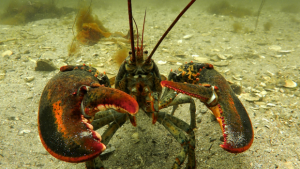 European Union scientists have given Sweden until July 31 to address U.S. and Canadian objections to Sweden’s claims that North American lobster is an invasive species that should be subject to an import ban. The scientific forum on invasive species met Wednesday to discuss Sweden’s claim that North American lobsters, which have been found in small numbers off the coasts of Sweden, Norway and Great Britain, pose a threat to the smaller European lobster. The forum asked Sweden to update its scientific justification for labeling the North American lobster as an invader to address objections raised by U.S. and Canadian scientists this month, including the argument that Sweden can’t show proof of an invasion despite decades of imports, or that offspring of the two species can spawn a second-generation hybrid. Read the rest here 17:28
European Union scientists have given Sweden until July 31 to address U.S. and Canadian objections to Sweden’s claims that North American lobster is an invasive species that should be subject to an import ban. The scientific forum on invasive species met Wednesday to discuss Sweden’s claim that North American lobsters, which have been found in small numbers off the coasts of Sweden, Norway and Great Britain, pose a threat to the smaller European lobster. The forum asked Sweden to update its scientific justification for labeling the North American lobster as an invader to address objections raised by U.S. and Canadian scientists this month, including the argument that Sweden can’t show proof of an invasion despite decades of imports, or that offspring of the two species can spawn a second-generation hybrid. Read the rest here 17:28
Today’s deep thoughts from a PETA person – Try the fish-free fish fingers
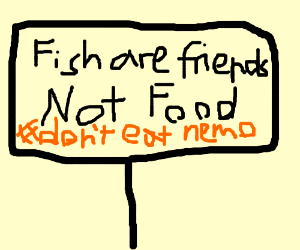 In all the talk about the EU Common Fisheries Policy, one party has been entirely ignored – the fish. Fish don’t get a vote, but if they did they’d surely want us to leave them alone so they might stay in the sea. More than one trillion fish and other sea animals die at the hands of humans each year. That’s about 143 for every human. Deep-sea trawling is responsible for widespread damage to coral reefs and underwater mountains and the ecosystems that depend on these habitats are crumbling. This reckless destruction of the ocean is both cruel and unsustainable. The good news is that delicious cruelty-free options – such as fish-free fish fingers, faux-fish cakes and mock prawns – are delicious, affordable and easy to find. Jennifer White, People for the Ethical Treatment of Animals Link 16:57
In all the talk about the EU Common Fisheries Policy, one party has been entirely ignored – the fish. Fish don’t get a vote, but if they did they’d surely want us to leave them alone so they might stay in the sea. More than one trillion fish and other sea animals die at the hands of humans each year. That’s about 143 for every human. Deep-sea trawling is responsible for widespread damage to coral reefs and underwater mountains and the ecosystems that depend on these habitats are crumbling. This reckless destruction of the ocean is both cruel and unsustainable. The good news is that delicious cruelty-free options – such as fish-free fish fingers, faux-fish cakes and mock prawns – are delicious, affordable and easy to find. Jennifer White, People for the Ethical Treatment of Animals Link 16:57
Do sharks survive after the hook?
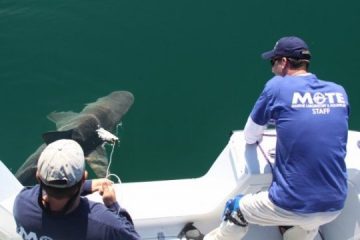 Fitbit-like sensors are the best tools for monitoring whether sharks survive catch-and-release fishing — essential data for fisheries management — according to a peer-reviewed study published June 23 by scientists from Mote Marine Laboratory in Sarasota, Florida. The study, published online in the scientific journal Fisheries Research, is the first to show that motion-sensing accelerometer tags detect whether a shark has survived and how it recovers from capture stress with much greater certainty than other prevailing technologies. Usually scientists fit sharks with satellite or acoustic transmitters to infer whether a shark has survived using indirect signals like location or depth. In contrast, accelerometers measure sharks’ fine-scale movements directly and with high resolution, including every tail beat, body tilt, ascent and descent. Read the rest here 16:41
Fitbit-like sensors are the best tools for monitoring whether sharks survive catch-and-release fishing — essential data for fisheries management — according to a peer-reviewed study published June 23 by scientists from Mote Marine Laboratory in Sarasota, Florida. The study, published online in the scientific journal Fisheries Research, is the first to show that motion-sensing accelerometer tags detect whether a shark has survived and how it recovers from capture stress with much greater certainty than other prevailing technologies. Usually scientists fit sharks with satellite or acoustic transmitters to infer whether a shark has survived using indirect signals like location or depth. In contrast, accelerometers measure sharks’ fine-scale movements directly and with high resolution, including every tail beat, body tilt, ascent and descent. Read the rest here 16:41
Debate over closing of B.C. salmon cannery goes to federal committee
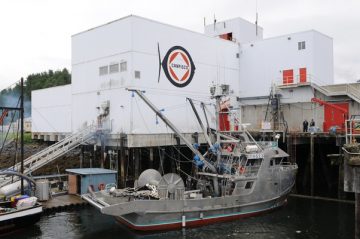 The debate over the closing of B.C.’s last salmon-canning operation shifted to Ottawa this month, where a federal committee heard sharply differing opinions on the issue. While the union representing plant workers decried changes at the Oceanside Cannery in Prince Rupert and called for new policies in response, the plant’s owner maintained relatively few jobs would be affected and that no policy changes are required. The committee also heard consumer tastes are shifting to fresh and frozen fish over the canned product that was once a mainstay on the B.C. coast. “Maintaining a large plant with many canning lines for limited production was not viable,” Rob Morley, vice-president of Canadian Fishing Co., told the standing committee on fisheries and oceans earlier this month. Read the story here 14:04
The debate over the closing of B.C.’s last salmon-canning operation shifted to Ottawa this month, where a federal committee heard sharply differing opinions on the issue. While the union representing plant workers decried changes at the Oceanside Cannery in Prince Rupert and called for new policies in response, the plant’s owner maintained relatively few jobs would be affected and that no policy changes are required. The committee also heard consumer tastes are shifting to fresh and frozen fish over the canned product that was once a mainstay on the B.C. coast. “Maintaining a large plant with many canning lines for limited production was not viable,” Rob Morley, vice-president of Canadian Fishing Co., told the standing committee on fisheries and oceans earlier this month. Read the story here 14:04
Tin Can Bay businessman rejects recreational fisherman’s call for net fishing ban
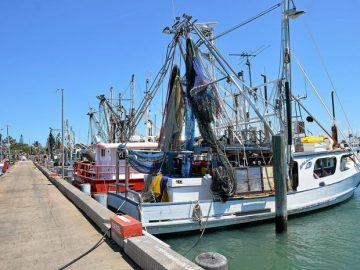 A Tin Can Bay businessman has rejected calls by recreational fishing spokesman Lindsay Dines for a net fishing ban to be implemented from the Mary River to Noosa. Mr Dines has strongly backed moves to World Heritage list the Cooloola section of Great Sandy Marine Park and the Sandy Strait. Cooloola Coast Seafoods owner Warren Sullivan sells local and imported seafood, fish and chips. He buys fish direct from local fishermen, processes them on site and then sells it on site. “I wonder what scientific evidence (Mr Dines) has about the fish fleeing nets or is he just making claims with no evidence to back this up?” Mr Sullivan asks. Read the rest here 10:54
A Tin Can Bay businessman has rejected calls by recreational fishing spokesman Lindsay Dines for a net fishing ban to be implemented from the Mary River to Noosa. Mr Dines has strongly backed moves to World Heritage list the Cooloola section of Great Sandy Marine Park and the Sandy Strait. Cooloola Coast Seafoods owner Warren Sullivan sells local and imported seafood, fish and chips. He buys fish direct from local fishermen, processes them on site and then sells it on site. “I wonder what scientific evidence (Mr Dines) has about the fish fleeing nets or is he just making claims with no evidence to back this up?” Mr Sullivan asks. Read the rest here 10:54
P.E.I. Fishermen’s Association favors conserving the recourse over extending the season
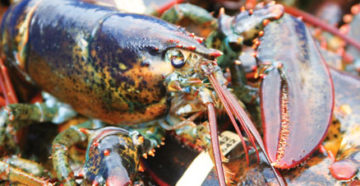 The Prince Edward Island Fishermen’s Association won’t be asking the federal government to extend the spring lobster fishery despite a slow start to the season. There was an expectation in recent days that Island lobster fishermen would seek an extension to the spring season. In a responsible decision Wednesday, fishermen announced they would not pursue that option. Everyone on this province is well aware the weather in May and deep into June was predominantly cold and damp. Things finally improved – or at least got warmer – on the weekend, once you discount the gale force winds Saturday afternoon, Sunday and Monday. Over those first seven weeks of the fishing season, a number of days were lost because of windy conditions. Many other days on the water were not pleasant, with persistent bone-chilling easterly or northerly winds. Read the rest here 10:12
The Prince Edward Island Fishermen’s Association won’t be asking the federal government to extend the spring lobster fishery despite a slow start to the season. There was an expectation in recent days that Island lobster fishermen would seek an extension to the spring season. In a responsible decision Wednesday, fishermen announced they would not pursue that option. Everyone on this province is well aware the weather in May and deep into June was predominantly cold and damp. Things finally improved – or at least got warmer – on the weekend, once you discount the gale force winds Saturday afternoon, Sunday and Monday. Over those first seven weeks of the fishing season, a number of days were lost because of windy conditions. Many other days on the water were not pleasant, with persistent bone-chilling easterly or northerly winds. Read the rest here 10:12
NMFS looks at catch reduction of Atlantic herring
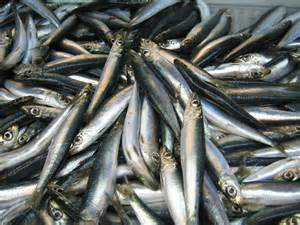 The National Marine Fisheries Service might reduce the herring catch limit by about 3 percent to slightly less than 105,000 metric tons. The limit was a little less than 108,000 metric tons for the 2013 to 2015 period; any new limit would apply to the years 2016 to 2018. The proposal is up for public comment until July 21. The herring fishery takes place off of New England and the mid-Atlantic, but is principally based in Maine and Massachusetts, with a substantial amount of herring also coming ashore in Rhode Island and New Jersey. It was worth a little less than $30 million in 2014, when fishermen caught about 92,000 metric tons. Read the rest here 09:16
The National Marine Fisheries Service might reduce the herring catch limit by about 3 percent to slightly less than 105,000 metric tons. The limit was a little less than 108,000 metric tons for the 2013 to 2015 period; any new limit would apply to the years 2016 to 2018. The proposal is up for public comment until July 21. The herring fishery takes place off of New England and the mid-Atlantic, but is principally based in Maine and Massachusetts, with a substantial amount of herring also coming ashore in Rhode Island and New Jersey. It was worth a little less than $30 million in 2014, when fishermen caught about 92,000 metric tons. Read the rest here 09:16
NOAA to reimburse fishermen 85 percent for 2016 at-sea monitoring costs
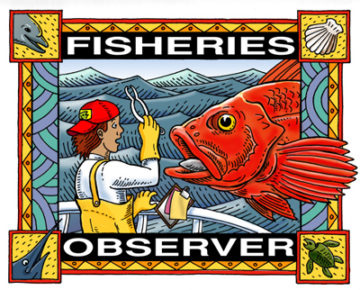 The National Oceanic and Atmospheric Administration will reimburse New England fishermen for 85 percent of the cost of at-sea monitors in 2016, U.S. Sen. Jeanne Shaheen’s office announced Wednesday. NOAA is expected to launch a program July 1 through the Atlantic States Marine Fisheries Commission where fishermen will be reimbursed for costs they pay this year to the at-sea monitors. Fishermen have said the costs, which began this year, are too much for them to pay and could sink their already weakened industry. NOAA is paying for the reimbursement program through extra funds left over from the 2015 fiscal year and does not intend to cover costs for at-sea monitors in 2017. Read the rest here 21:44
The National Oceanic and Atmospheric Administration will reimburse New England fishermen for 85 percent of the cost of at-sea monitors in 2016, U.S. Sen. Jeanne Shaheen’s office announced Wednesday. NOAA is expected to launch a program July 1 through the Atlantic States Marine Fisheries Commission where fishermen will be reimbursed for costs they pay this year to the at-sea monitors. Fishermen have said the costs, which began this year, are too much for them to pay and could sink their already weakened industry. NOAA is paying for the reimbursement program through extra funds left over from the 2015 fiscal year and does not intend to cover costs for at-sea monitors in 2017. Read the rest here 21:44
Carlos Rafael and smuggling accomplice Antonio M. Freitas trial date set to begin on Jan. 9, 2017
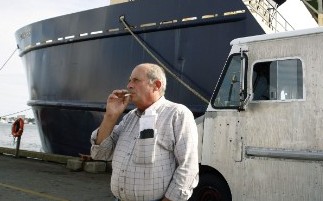 The two defendants’ cases have progressed side by side so far. Neither appeared in U.S. District Court on Wednesday in Boston, where District Court Judge William G. Young scheduled their trial to begin on Jan. 9, 2017, in a brief status conference. Neither a federal prosecutor nor lawyers for Rafael and Freitas commented afterward. Rafael, a 64-year-old Dartmouth resident who owns one of the largest commercial fishing operations in the U.S., including scores of New Bedford-based vessels, faces 27 counts on federal charges including conspiracy, false entries and bulk cash smuggling, according to the indictment filed last month. Freitas is a 46-year-old Taunton resident and Bristol County Sheriff’s Office deputy, suspended without pay. He faces two federal counts, one for bulk cash smuggling and one for international structuring. Read the rest here 20:37
The two defendants’ cases have progressed side by side so far. Neither appeared in U.S. District Court on Wednesday in Boston, where District Court Judge William G. Young scheduled their trial to begin on Jan. 9, 2017, in a brief status conference. Neither a federal prosecutor nor lawyers for Rafael and Freitas commented afterward. Rafael, a 64-year-old Dartmouth resident who owns one of the largest commercial fishing operations in the U.S., including scores of New Bedford-based vessels, faces 27 counts on federal charges including conspiracy, false entries and bulk cash smuggling, according to the indictment filed last month. Freitas is a 46-year-old Taunton resident and Bristol County Sheriff’s Office deputy, suspended without pay. He faces two federal counts, one for bulk cash smuggling and one for international structuring. Read the rest here 20:37
Last-in first-out policy squabble pits Nunavut and Labrador against Nova Scotia
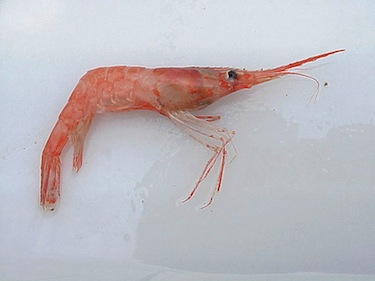 There’s a danger that Nunavut’s already inadequate share of offshore shrimp quota could get even smaller if the Department of Fisheries and Oceans continues to apply its last in, first out approach to allocating shrimp quotas, Nunavut Senator Dennis Patterson said last week. “All Nunavut asks for is to be treated fairly and to have the terms of their constitutionally protected Nunavut land claim respected,” Patterson said. Patterson’s contribution to the campaign comes at a time when various entrenched interests, especially long-established fishing fleets in Nova Scotia, are fighting to hold on to their total allowable catch in the face of shrimp stocks that are declining because of climate change. “Last-in, first-out,” or “LIFO,” is a federal policy that’s been applied to the northern shrimp fishery since at least 1997. Read the rest here 17:36
There’s a danger that Nunavut’s already inadequate share of offshore shrimp quota could get even smaller if the Department of Fisheries and Oceans continues to apply its last in, first out approach to allocating shrimp quotas, Nunavut Senator Dennis Patterson said last week. “All Nunavut asks for is to be treated fairly and to have the terms of their constitutionally protected Nunavut land claim respected,” Patterson said. Patterson’s contribution to the campaign comes at a time when various entrenched interests, especially long-established fishing fleets in Nova Scotia, are fighting to hold on to their total allowable catch in the face of shrimp stocks that are declining because of climate change. “Last-in, first-out,” or “LIFO,” is a federal policy that’s been applied to the northern shrimp fishery since at least 1997. Read the rest here 17:36
Scientist sees no benefit in expansion of Papahanaumokuakea Monument
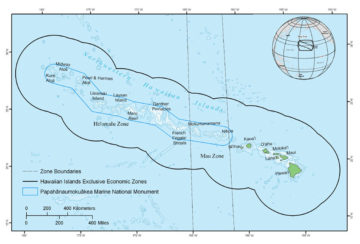 A senior scientist from the Western Pacific Regional Fishery Management Council says there’s no conservation benefits in expanding Hawaii’s protected waters. Council members are opposing the plan to expand the Papahanaumokuakea Monument saying it would be detrimental to Hawaii’s economy, food security and food production. An executive order, issued by President Obama in 2014, would increase the Monument five-fold and reduce the available fishing grounds in the exclusive economic zone around Hawaii from 63 to 15 percent. The scientist, Paul Dalzell, said claims that the monument’s expansion would improve conservation were false. He says, “It will not improve things for fisheries or for the abundance of marine fish. “For a start off, it’s open ocean so pelagic species just swim through it. It won’t pile up there and then replenish fish stocks around the main Hawaiians.” Link 16:19
A senior scientist from the Western Pacific Regional Fishery Management Council says there’s no conservation benefits in expanding Hawaii’s protected waters. Council members are opposing the plan to expand the Papahanaumokuakea Monument saying it would be detrimental to Hawaii’s economy, food security and food production. An executive order, issued by President Obama in 2014, would increase the Monument five-fold and reduce the available fishing grounds in the exclusive economic zone around Hawaii from 63 to 15 percent. The scientist, Paul Dalzell, said claims that the monument’s expansion would improve conservation were false. He says, “It will not improve things for fisheries or for the abundance of marine fish. “For a start off, it’s open ocean so pelagic species just swim through it. It won’t pile up there and then replenish fish stocks around the main Hawaiians.” Link 16:19
Bay of Fundy fishermen’s group mulls legal action to stop tidal turbine project
 Nova Scotia Environment Minister Margaret Miller announced approval Monday of a monitoring plan drawn up by the Fundy Ocean Research Centre for Energy (FORCE) and Cape Sharp Tidal Venture. But the Bay of Fundy Inshore Fishermen’s Association says little is known about marine life in the area and the instream tidal turbines can’t be made safe for the ecosystem. “I think she based her decision on industry-funded junk science and on political considerations,” says Colin Sproul, a lobster fisherman with the Bay of Fundy Inshore Fishermen’s Association. “She chose to completely ignore the voice and concerns of every fishing group in Nova Scotia, multiple environmental groups, as well as First Nations.” Video, Read the rest here 15:26
Nova Scotia Environment Minister Margaret Miller announced approval Monday of a monitoring plan drawn up by the Fundy Ocean Research Centre for Energy (FORCE) and Cape Sharp Tidal Venture. But the Bay of Fundy Inshore Fishermen’s Association says little is known about marine life in the area and the instream tidal turbines can’t be made safe for the ecosystem. “I think she based her decision on industry-funded junk science and on political considerations,” says Colin Sproul, a lobster fisherman with the Bay of Fundy Inshore Fishermen’s Association. “She chose to completely ignore the voice and concerns of every fishing group in Nova Scotia, multiple environmental groups, as well as First Nations.” Video, Read the rest here 15:26
N.C. Division of Marine Fisheries says Commercial and Recreational landings rose in 2015
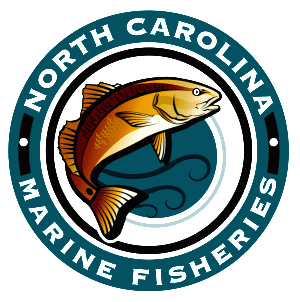 The DMF issued the 2015 Annual Fisheries Bulletin on Tuesday, which includes landings reports on both commercial and recreational landings in North Carolina. According to the reports, commercial fishermen sold 65,952,115 pounds of finfish and shellfish to seafood dealers last year, 6.8 percent (4,178,075 pounds) more than the 61,774,040 pounds harvested in 2014 and higher than the five-year average of 60.5 million pounds. The dockside value of these landings rose from $93,906,612 by 10.7 percent ($10,062,090) to an estimated $103,968,702, topping the five-year average annual value of $84.2 million. Most notable among 2015 commercial fishing statistics were increases in shrimp and hard crab landings during the latter months of the year. Shrimp landings increased from 4,691,067 pounds in 2014 by 94 percent (4,406,593 pounds) to 9,097,660 pounds in 2015, the highest shrimp landings since 2008. Read the rest here 14:07
The DMF issued the 2015 Annual Fisheries Bulletin on Tuesday, which includes landings reports on both commercial and recreational landings in North Carolina. According to the reports, commercial fishermen sold 65,952,115 pounds of finfish and shellfish to seafood dealers last year, 6.8 percent (4,178,075 pounds) more than the 61,774,040 pounds harvested in 2014 and higher than the five-year average of 60.5 million pounds. The dockside value of these landings rose from $93,906,612 by 10.7 percent ($10,062,090) to an estimated $103,968,702, topping the five-year average annual value of $84.2 million. Most notable among 2015 commercial fishing statistics were increases in shrimp and hard crab landings during the latter months of the year. Shrimp landings increased from 4,691,067 pounds in 2014 by 94 percent (4,406,593 pounds) to 9,097,660 pounds in 2015, the highest shrimp landings since 2008. Read the rest here 14:07
Athearn Marine Agency Boat of the Week: 32′ H & H Lobster, Tuna or Cruiser, 350HP, Cummins Diesel (low hours)
Specifications, information and 12 photos click here To see all the boats in this series, Click here 12:01
Turning Discarded Lobster Shells Into Batteries
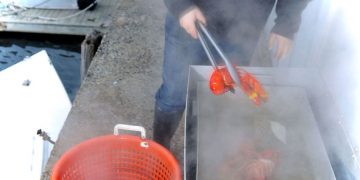 Mark MacLachlan, of the University of British Columbia in Vancouver, has found a new way to produce batteries: the discarded shells of shellfish. Specifically, by using chitin, the substance that gives certain animals their iridescence (think the luster of the interior of an oyster shell). As reported by Hakai Magazine, Chitin can already be used for a variety of purposes, both medical and industrial. It can be used as biodegradable surgical thread, meaning sutures eventually disappear on their own. It’s can also be used to form a version of biodegradable plastic. Read the rest here 11:16
Mark MacLachlan, of the University of British Columbia in Vancouver, has found a new way to produce batteries: the discarded shells of shellfish. Specifically, by using chitin, the substance that gives certain animals their iridescence (think the luster of the interior of an oyster shell). As reported by Hakai Magazine, Chitin can already be used for a variety of purposes, both medical and industrial. It can be used as biodegradable surgical thread, meaning sutures eventually disappear on their own. It’s can also be used to form a version of biodegradable plastic. Read the rest here 11:16
Bertie Armstrong: ending EU fisheries policy a good decision
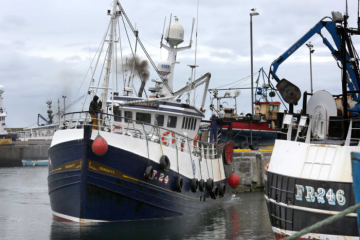 From the article: Of course, the European Union, and the much-derided Common Fisheries Policy (CFP) are at the very heart of that, which is why so many fishermen are implacably opposed to both. This is hardly surprising and it is worth reminding ourselves why fishing takes a unique position in Europe, making it so different from other industry sectors. Sovereignty and jurisdiction (beyond each member state’s slim strip of territorial waters) is pooled and the EU uses the CFP to govern every aspect of the industry. That fundamental change – the trading of sovereignty for collective control – took place when we joined. Collaboration is vital under any governance regime, but non-EU coastal states such as Norway and Iceland retain jurisdiction and negotiate on their own behalf. Read the op-ed here 10:56
From the article: Of course, the European Union, and the much-derided Common Fisheries Policy (CFP) are at the very heart of that, which is why so many fishermen are implacably opposed to both. This is hardly surprising and it is worth reminding ourselves why fishing takes a unique position in Europe, making it so different from other industry sectors. Sovereignty and jurisdiction (beyond each member state’s slim strip of territorial waters) is pooled and the EU uses the CFP to govern every aspect of the industry. That fundamental change – the trading of sovereignty for collective control – took place when we joined. Collaboration is vital under any governance regime, but non-EU coastal states such as Norway and Iceland retain jurisdiction and negotiate on their own behalf. Read the op-ed here 10:56
Oak Bluffs fisherman Luke Gurney recalled with love, pride
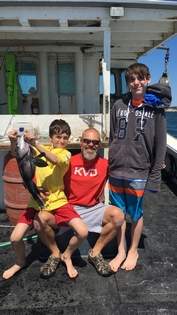 “He loved the water,” John Gurney said. “It became his nemesis.” Luke Gurney primarily fished Nantucket Sound and focused on whelk, sea bass and scup, his father said. He owned the 42-foot No Regrets, which he had operated since 2012. He sold whelk to dealers in New Bedford, who then shipped the sea snail to southeast Asia. “He was only four years into his business, but it was very successful,” John Gurney said. Last year, his son caught 107,000 pounds of whelk. “That’s a good take for a year of fishing,” the father said. John Gurney said his son had started fishing on freshwater ponds but had moved to salt water and “never left.” “If I fished with him, I knew I would catch fish,” Gurney, a sportfisherman, said. “He had a nose for fishing.” Luke Gurney grew up in New Bedford and graduated from high school in 1986. After college he moved to Martha’s Vineyard, where his parents have a second home. He was married to Robyn Gurney, and they had two sons, Jacob, 13, and Sam, 11. Read the rest here 08:30
“He loved the water,” John Gurney said. “It became his nemesis.” Luke Gurney primarily fished Nantucket Sound and focused on whelk, sea bass and scup, his father said. He owned the 42-foot No Regrets, which he had operated since 2012. He sold whelk to dealers in New Bedford, who then shipped the sea snail to southeast Asia. “He was only four years into his business, but it was very successful,” John Gurney said. Last year, his son caught 107,000 pounds of whelk. “That’s a good take for a year of fishing,” the father said. John Gurney said his son had started fishing on freshwater ponds but had moved to salt water and “never left.” “If I fished with him, I knew I would catch fish,” Gurney, a sportfisherman, said. “He had a nose for fishing.” Luke Gurney grew up in New Bedford and graduated from high school in 1986. After college he moved to Martha’s Vineyard, where his parents have a second home. He was married to Robyn Gurney, and they had two sons, Jacob, 13, and Sam, 11. Read the rest here 08:30
Mississippi 2016 shrimp season began with small shrimp, low prices
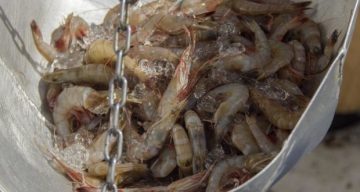 “Shrimp season opened June 6, and about 200,000 pounds of brown shrimp were landed during the first week,” Burrage said. “The bad news is they were running about 50-60 or 60-70 shrimp per pound, which is even smaller than the shrimp were last year at opening.” In addition to brown shrimp, another 50,000 pounds of larger white shrimp were landed the first week of the season. These shrimp escaped harvest last year and now are sized at 16-20 per pound. “They were either jumbo or gumbo,” Burrage said, referring to extra-large shrimp or a smaller size suited only for use in stew. Burrage said prices have been terrible. Brown shrimp are selling at the factories for 55 to 75 cents a pound. The big, white shrimp are bringing $2.50 to $4.50, depending on whether they are sold to factories or used to fill orders for restaurant customers. Read the rest here 21:07
“Shrimp season opened June 6, and about 200,000 pounds of brown shrimp were landed during the first week,” Burrage said. “The bad news is they were running about 50-60 or 60-70 shrimp per pound, which is even smaller than the shrimp were last year at opening.” In addition to brown shrimp, another 50,000 pounds of larger white shrimp were landed the first week of the season. These shrimp escaped harvest last year and now are sized at 16-20 per pound. “They were either jumbo or gumbo,” Burrage said, referring to extra-large shrimp or a smaller size suited only for use in stew. Burrage said prices have been terrible. Brown shrimp are selling at the factories for 55 to 75 cents a pound. The big, white shrimp are bringing $2.50 to $4.50, depending on whether they are sold to factories or used to fill orders for restaurant customers. Read the rest here 21:07






